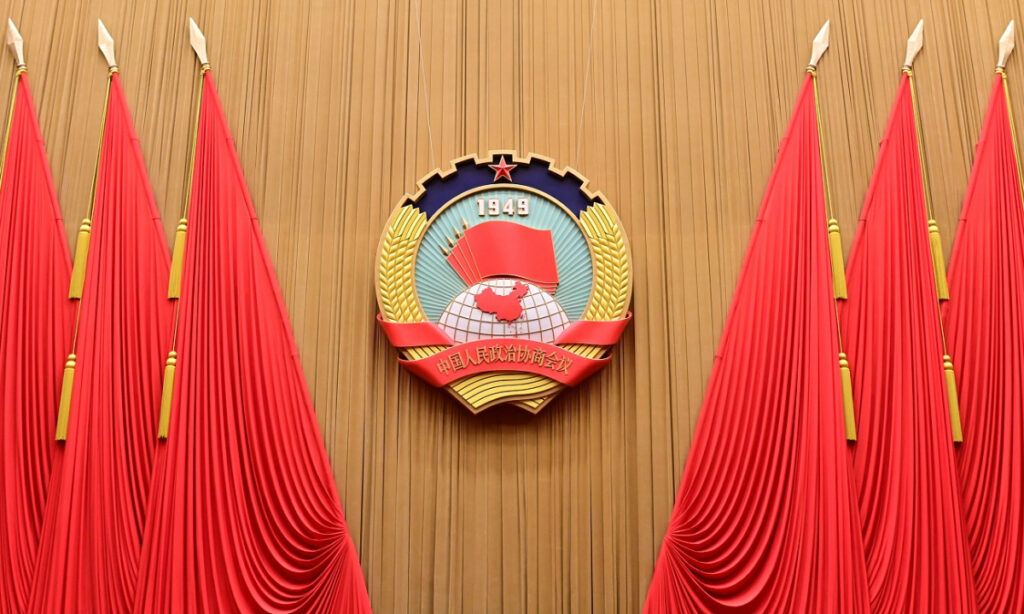Amendment to the charter of the Chinese People’s Political Consultative Conference (CPPCC) was unveiled on Saturday with the aim to uphold and improve the system of multiparty cooperation and political consultation under the leadership of the Communist Party of China (CPC), practice the democratic ideas of whole-process people’s democracy and give full play to the role of the CPPCC as a special consultative body to better serve the overall work of the Party and the country.
The amendment follows the general principles of upholding the overall leadership of the CPC and centralized and unified leadership of the CPC Central Committee, accurately grasping the nature and positioning of the CPPCC, upholding and improving the multiparty cooperation and political consultation system led by the CPC as well as practicing the concept of whole-process people’s democracy and using the CPPCC as a special consultative body to better serve the overall work of the Party and the country, an official from the CPPCC National Committee told media on Saturday.
The general framework and main content of the CPPCC charter were finalized in 1982, and previously the charter underwent four amendments in 1994, 2000, 2004 and 2018, respectively, to meet the needs of the work of the CPPCC. At the same time, the past experiences have demonstrated that only by constantly adapting to the times by enriching content and formulating new norms, the CPPCC charter can play a better role and promote the development of the consultative body.
Changes include adding the sentence “socialism with Chinese characteristics has entered a new era,” after the original fifth paragraph of the general outline of the charter, changing the sentence “historic changes have taken place in the cause of the country, and the socialism with Chinese characteristic has entered a new era” to “historic achievements and changes have taken place in the cause of the country, the country has realized the first centenary goal, and embarked the new journey to achieve the second centenary goal.”
Bater, vice chairman of the 13th CPPCC National Committee, said on March 8 that making appropriate amendments to the CPPCC charter is important for better following and improving the CPC-led system of multiparty cooperation and political consultation, and for strengthening the institutional building and self-building of the CPPCC.
The amendment also fully reflects the latest achievements in adapting Marxism to the Chinese context and the new requirements of the CPC Central Committee for the work of the CPPCC since the 19th National Congress of the CPC, the official from the CPPCC National Committee said.
“Opposing to the ideology and phenomena of privilege” has been added after “overcoming formalism, bureaucracy, hedonism and extravagance.” Also, “studying the history of the CPC, the history of the PRC, the history of the country’ reform and opening-up and the history of socialist development” has been added after the work requirement – organize and study current affairs and politics.
The update adds the principle of only patriots governing Hong Kong and Macao after the requirement of handling affairs in accordance with the Constitution and the Basic Law. The amendment also requires enhancing the connection and solidarity with compatriots in Hong Kong and Macao to encourage them to contribute to the country’s reunification.
In terms of enhancing friendly exchanges and cooperation with other countries and their people, some changes were made codifying that the CPPCC National Committee and local committees should advocate and implement the country’s foreign policies, promoting peace, development, justice, fairness, democracy and freedom as the common values of human being, pushing forward to build a human community of shared future.
The amendment is based on public input formed through 132 formal feedback submissions and 981 suggestions, which have been summarized into 218 items, the CPPCC official said. After a thorough study and research, 36 changes were decided upon covering 151 suggestions.
The amendment also adds that the non-communist parties are close friends who accept the leadership of the CPC and cooperate with the CPC, who are also good advisers, helpers and colleagues of the CPC, further consolidating and developing the broadest patriotic united front. It also emphasizes the CPPCC will unswervingly follow the correct path of solving ethnic issues with Chinese characteristics.
Zhang Xixian, a professor at the Party School of the CPC Central Committee in Beijing, told the Global Times on Saturday that in general, the amendment has included new concepts and ideas taken from the 20th CPC National Congress into the CPPCC charter.
One of the most crucial adjustments is that, Zhang noted, it highlights the political role of the CPPCC in the country’s institutional system during the second centenary goal, and the institutional arrangement of the role of CPPCC.
Another highlight of this amendment is an emphasis on whole-process people’s democracy. Specifically, how democratic ideas will integrate well into the work of the CPPCC, and how they will be implemented among various political parties, Zhang explained.
“The amendment has a profound significance that it will lay a new foundation and points out a new direction for future CPPCC work – including what road the CPPCC should take and how to advance the political significance of the CPPCC in the second centenary goal,” he said.
(Global Times)




